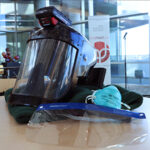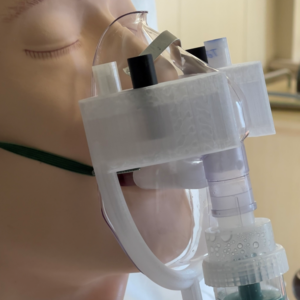OMAHA, Neb. (Oct. 15, 2014)—A new sponsored research agreement between a University of Nebraska Medical Center scientist and an industrial partner will look to produce the next generation of safer, more effective surgical meshes.
Matthew MacEwan, an alum of Pipeline’s 2012 fellowship class and the President at Acera Surgical Inc., signed the research partnership, which will explore clinical applications for a new invention developed in UNMC’s College of Pharmacy. MacEwan will also discuss the new technology as one of the featured presenters during the second annual UNMC Technology Demonstration Day on Tuesday, Oct. 21.
Demo Day is a forum highlighting some of the most advanced and promising new technologies emerging from UNMC research laboratories. It is among several events during Innovation Week, which is hosted every year by UNeMed, the technology transfer office for UNMC.
The new partnership was partly a result of UNeMed’s relationship with Pipeline, a regional entrepreneurial program that recently expanded its reach to include all of St. Louis. Until recently, Pipeline’s reach into St. Louis was limited to those associated with Washington University, such as MacEwan who entered the program while pursuing an M.D./PhD
Acera Surgical Inc. is a surgical device startup company based in St. Louis, specializing in the next generation of surgical materials. Its cornerstone product, CeraFix™ Dural Substitute, is an implantable biosynthetic material, or scaffold, for use in brain surgery. CeraFix™ is under review by the FDA and is not yet available for clinical use or sale.
Acera will perform additional testing on existing materials using a new method developed by Jingwei Xie, PhD, an assistant professor in UNMC’s Department of Pharmaceutical Sciences.
Dr. Xie recently developed a new process for producing three-dimensional nanofabricated materials and matrices.
“Our goal is to give surgeons a new option when it comes to implantable materials,” MacEwan said. “We are very excited by the work that Dr. Xie is doing, and we believe the process he’s developing will lead to a new generation of medical devices that may improve clinical care for a large number of patients.”
In healthcare, synthetic nanofabricated materials are commonly used as bandages, to deliver drugs, or even engineer and repair tissue. Nanofiber matrices are also used in engineering as filters and membranes; in solar cells and fuel cells; and as chemical and biological protection sensors in defense and security applications.
When existing nanofiber materials are treated with the new process, the materials show a significant increase in porosity, which makes them more effective as tissue and cellular scaffolds. The materials may also be more absorptive and provide a unique substrate for cell cultures, according to early studies.
Acera will also explore creating entirely new products based on Dr. Xie’s work.
The first round of testing is expected to occur over the next six months, and, if successful, could lead to a deeper partnership between Acera and UNMC. Acera may explore additional opportunities in the Omaha area if early experiments lead to a new product, MacEwan said.












[…] this post was a look at a recent success story of UNMC technology resulting from UNeMed’s consistent and continued involvement in the startup […]